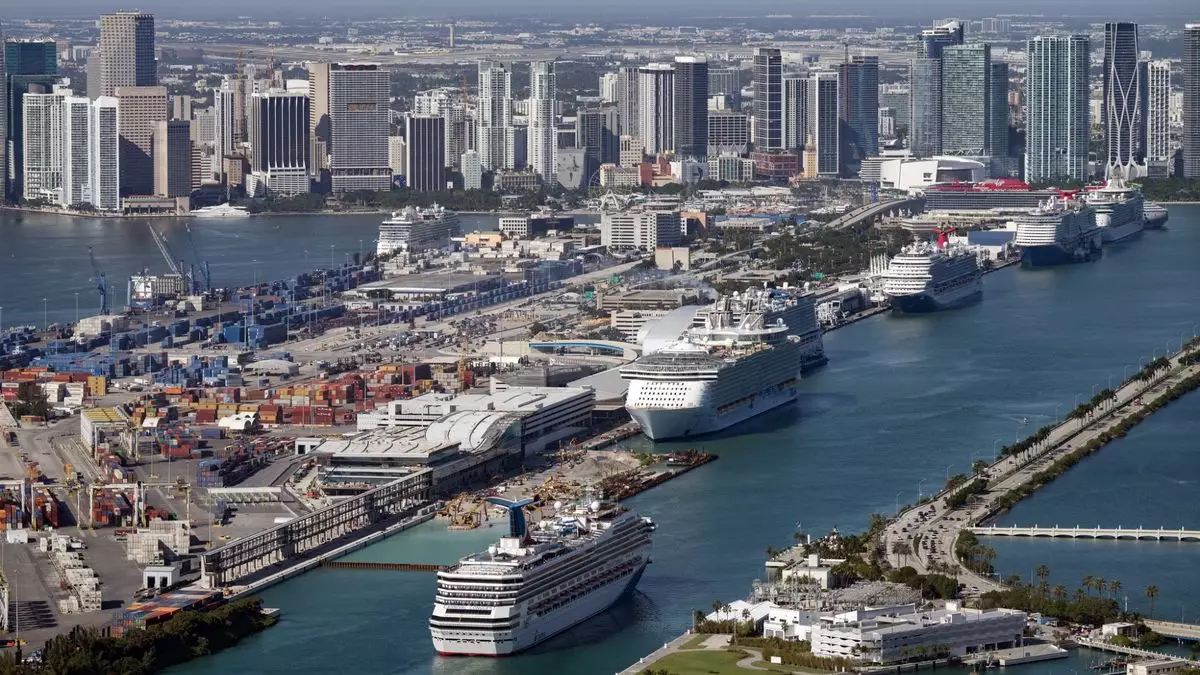On October 1st, the International Longshoremen’s Association (ILA) initiated a strike that has significantly affected port operations across the United States, spanning from Maine to Texas. This labor action marks a pivotal moment in the ongoing dialogue about wages and working conditions within the maritime industry. With a focus on increasing pay and opposing automation, ILA members are taking a strong stance that could have far-reaching implications. While the strike has disrupted cargo handling operations in 36 ports along the Atlantic and Gulf coasts, it’s notable that cruise operations will not be affected.
Harold Daggett, the president of the ILA, has underscored the union’s commitment to keeping cruise operations running smoothly. Recognizing the significance of pre-planned vacations, Daggett expressed concern for the many families who anticipate their cruise experiences and have made financial commitments well in advance. His statement highlights an important aspect of labor strikes: the need to balance union goals with public sentiment and industry reputation. By ensuring that cruise ships are serviced, the ILA aims to prevent disappointment among vacationers, illustrating that while labor actions may be necessary, they can also be executed with an awareness of broader community impacts.
The consequences of the strike for cargo shipping, however, are severe. With ILA workers refusing to unload cargo from ships, concerns grow about potential shortages of essential goods in supermarkets and delays in auto shipments. This denial of service raises critical questions about the interconnectivity of supply chains and the potential ripple effects on the economy. If the strike prolongs, grocery store shelves may face diminished stock, affecting consumer accessibility. This situation highlights the importance of longshoreman roles in ensuring steady supplies, showcasing how a single strike can threaten the flow of goods nationwide.
The maritime sector, including companies such as Norwegian Cruise Line Holdings, has responded to the strike with statements of appreciation for the ILA’s decision to continue servicing cruise passengers. This acknowledgment reflects an understanding of the economic ramifications of disrupted cruise operations versus those associated with cargo delays. The balance the ILA has chosen aims to maintain operational areas that could otherwise risk alienating a significant consumer demographic.
As the strike progresses, the immediate focus remains on negotiations between the ILA and employers regarding wages and working conditions. Historically, strikes are powerful tools for labor unions, often leading to favorable outcomes when effectively leveraged. It remains to be seen how long the ILA will maintain its current course and what compromises may arise from ongoing discussions. The labor landscape continues to evolve, and the outcome of this strike could set critical precedents for future labor relations in the maritime industry, ultimately affecting not just the employees, but also consumers and the economy at large.
While the strike is a formidable assertion of workers’ rights, it brings forth significant challenges that may reverberate across multiple sectors of the economy, necessitating careful consideration and responsive negotiation to minimize adverse impacts.


Leave a Reply